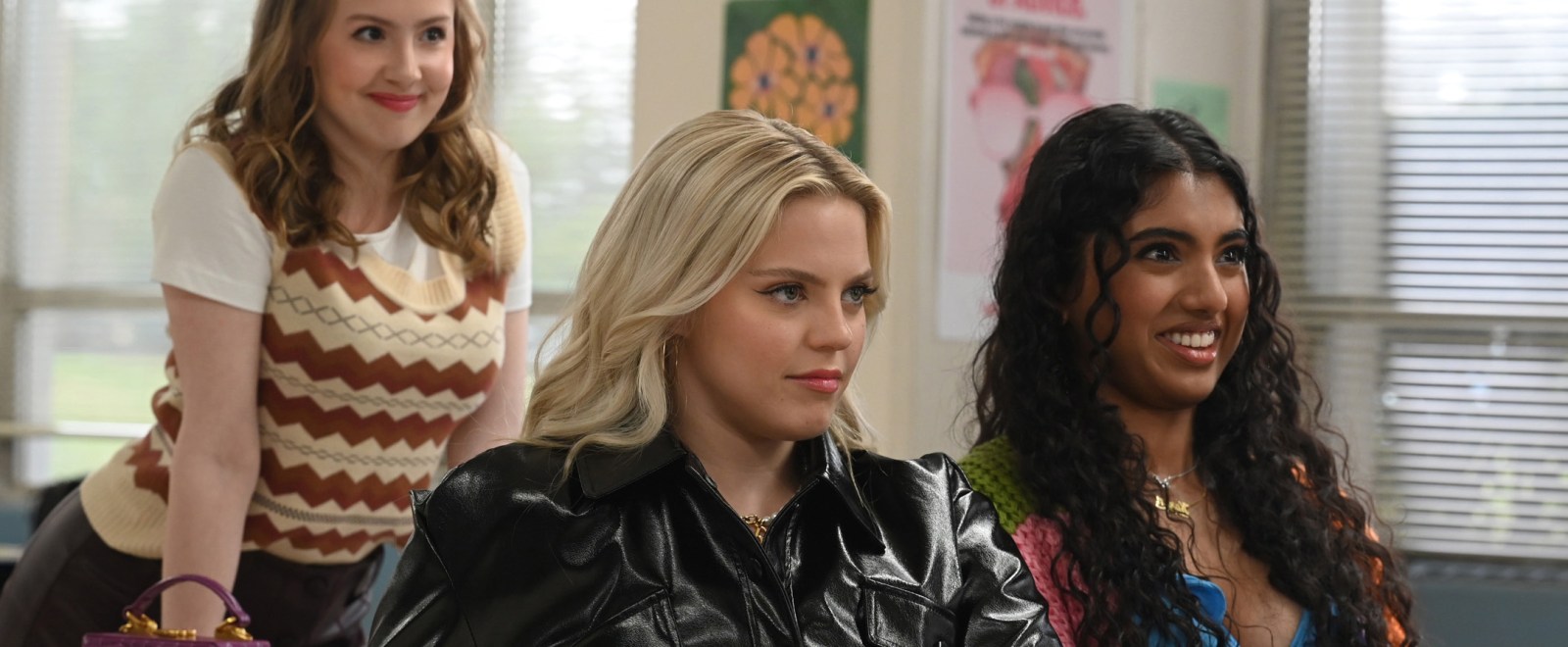
Stick with me here: the new Mean Girls movie is based on the Broadway musical that’s based on the hit 2004 feature film that was based on the 2002 teenager self-help book Queen Bees and Wannabes, which is based on the real-life horror of being a teenage girl. So there is a lot riding on this new film, which also happens to be a musical.
To back it up a bit, in 2018, the Mean Girls musical debuted on Broadway to positive reviews, with many critics praising the dialogue adaptation, while noting that the music was a weaker point. Renee Rapp made her debut as Regina George in 2019, while Sabrina Carpenter starred as Cady in only a handful of performances before Broadway was shut down in 2020.
Luckily, Rapp returned as the head plastic Regina George in the 2024 adaptation, which hits theaters this Friday. Tina Fey returned to pen the screenplay, with music by her husband, Jeff Richmond. While many critics are praising Rapp as the Queen Bee, the film seems to fall short in other ways, mostly through the clunky musical numbers and the over-inclusion of social media. Here’s what the critics are saying:
Maureen Lee Lenker, EW:
Despite the marketing campaign’s efforts to hide the fact that this adaptation is a musical, it very much is one. Its score, with music by Fey’s husband, Jeff Richmond, and lyrics by Nell Benjamin (Legally Blonde: The Musical), is middling and largely unremarkable (like a lot of contemporary musical theater). But there are standout numbers, particularly the show’s major earworm, “Revenge Party,” which is framed as a rainbow-colored, glitter-soaked expositional montage as Janis and Damian outline their plot to Cady.
As it did in 2004, Mean Girls is a playground for a melange of fresh, new talent for whom we hope the limit does not exist. Did we really need another film version? No. But it’s pretty grool that the one we got is such fun.
David Rooney, The Hollywood Reporter:
The songs seldom spring organically from the story and more often feel so awkwardly shoehorned in that you come to dread them. What’s worse is that the music is so gratingly over-produced and studio-enhanced you miss the high of characters spontaneously singing. In terms of musical deficiencies, that’s a deal-breaker. The final nail in the coffin is the creative team’s decision wherever possible to frame the songs through social media. The device is used so unrelentingly you start to wonder why the entire movie wasn’t made on TikTok. Maybe it would be less of a garish eyesore on a smartphone.
Even the earlier movie’s savvy take on teen anxiety, social hierarchies, peer pressure, female toxicity and power dynamics feels scarcely warmed over in this lackluster treatment. Perhaps the 20-year-old material is just past its prime?
Tom Gliatto, People:
Compared to [Rapp] everyone else — including Avantika and Bebe Wood as the other Plastics; Fey and Tim Meadows, reprising their roles as faculty members; even Busy Philipps as the “cool mom” played by Amy Poehler in the first film — tumbles down and falls away, like chalk cliffs endlessly battered by a surging sea. The musical numbers are mostly bright, brash and frequently awful. The songs just keep coming at you, noisily whirring with speed and determined to make maximum impact. It’s gym-class dodgeball all over again.
Owen Gleiberman of Variety, on the other hand, praised the film’s faithfulness to the Broadway adaptation:
Will the new movie replace the original film in anyone’s affections? That might depend on how old you are. (For some, the 2004 version will always be sacred; for others, it’s their mom’s “Mean Girls.”) I’ll just say that after you’ve seen the pop singer Renée Rapp, as the head mean girl Regina (Rapp also played the role on stage), make her grand entrance in a black vinyl bodysuit, singing “My name is Regina George, and I am a massive deal…,” as if she were Anita Ekberg crossed with Mata Hari, the scene carries a jolt, and you may wonder for a moment how Rachel McAdams, in the original film, made the impact she did without that song.
While Kate Erbland of IndieWire had other thoughts:
Somewhere, someone who doesn’t even go here is yelling, “This isn’t your mother’s ‘Mean Girls‘!,” but actually, it mostly is, now just with song and dance.
Not every part of the stage musical translates seamlessly to the big screen. Mostly, the hiccups happen in actual transitions, from scene to scene, song to song. A ditty about Gretchen Wieners’ (Bebe Wood) self-loathing is awkwardly played for both laughs and tears, landing neither. Some of the emotion is sucked out of minor subplots and characters (Christopher Briney’s Aaron Samuels, we hardly knew ye!), and a more abrupt ending than from the original film is a head-scratcher. But its overall winking nature — those self-referential narrators, a few well-placed winks to the camera, song-and-dance sequences that know they’re song-and-dance sequences — go a long way.
Lisa Laman, Collider:
Unfortunately, this new iteration of Mean Girls doesn’t justify its existence even when the subpar musical numbers finally cease. Tina Fey has many talents as a writer and performer, but unfortunately, having her write a “modern” version of this story was a mistake. She just can’t seem to get a grasp on how to tap into modern-day technology or 2020’s social norms to make this new Mean Girls its own beast. Instead, she opts to make it the same movie as the 2004 film. Only now, a swarm of TikTok videos fill up the screen (and communicate key narrative points) in brief montage sequences. Without a discernible concept for making Mean Girls feel new again, Fey tragically falls back on fan service to carry the day.
Mean Girls hits theaters on January 12th. It might be fetch!
